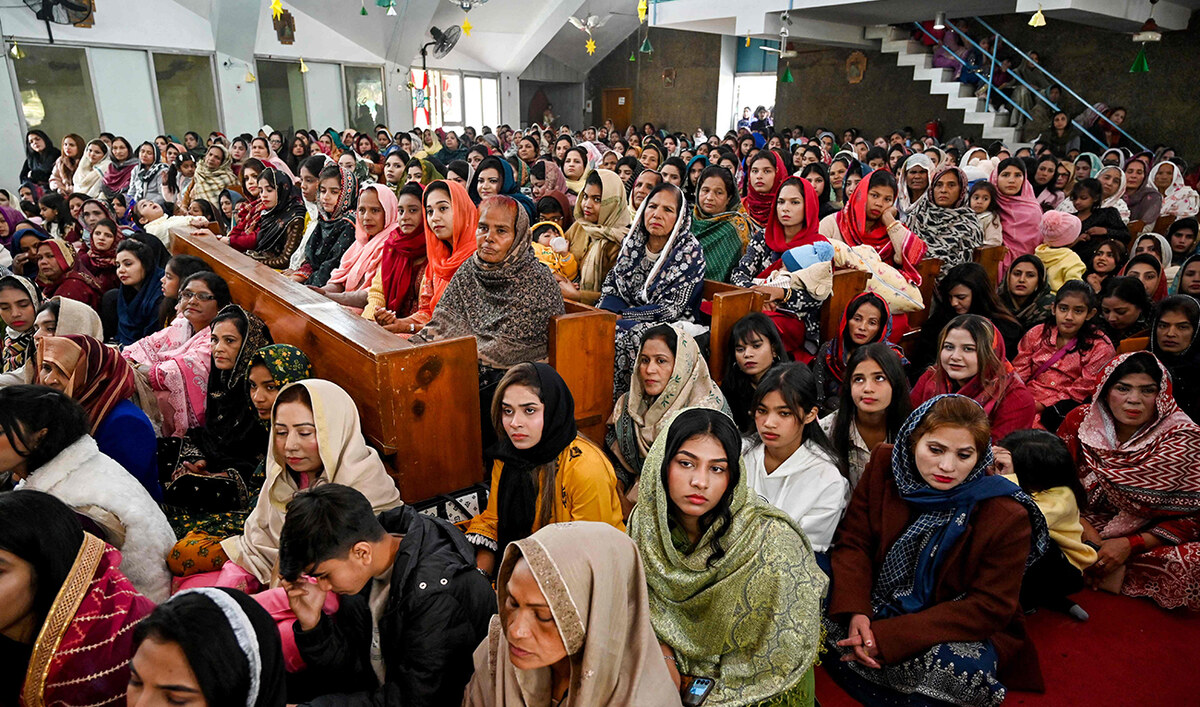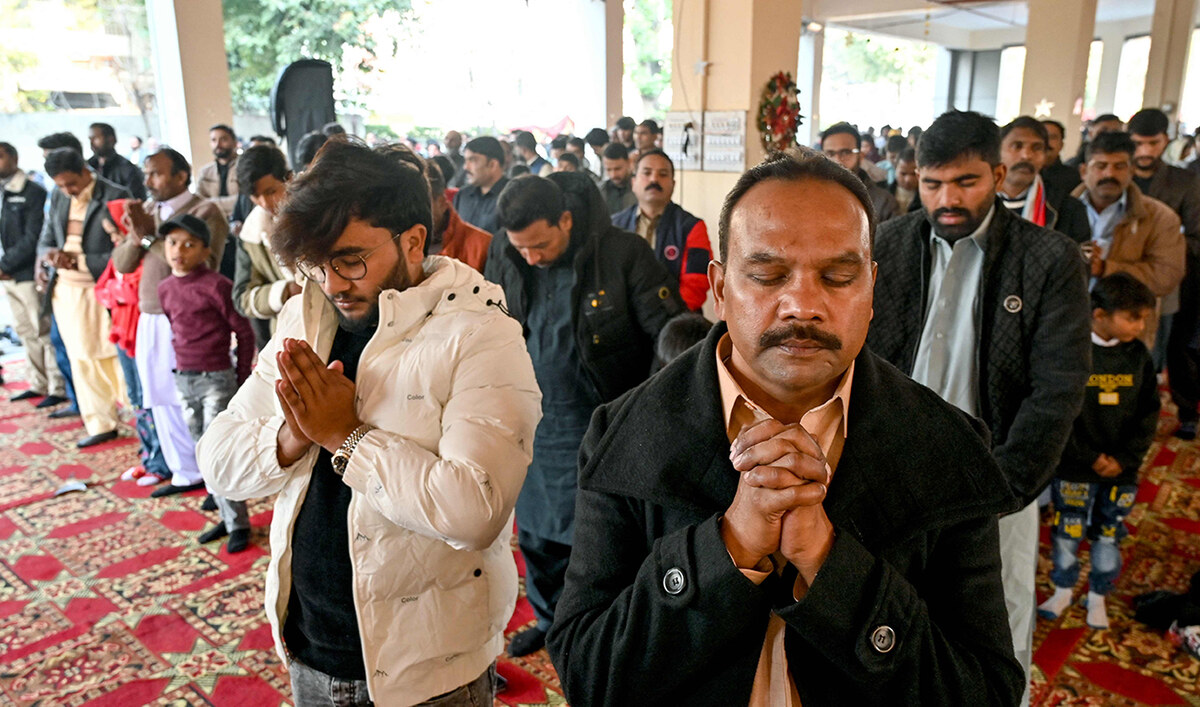KARACHI: Pakistan’s finance minister Ishaq Dar said on Wednesday a dedicated wing would soon be established at the State Bank of Pakistan (SBP) to ensure the country’s transformation into an interest-free economy to comply with a ruling of the Federal Shariat Court (FSC) earlier this year.
The FSC directed the government in April to eliminate riba, or interest, within five years while pointing out its prohibition was absolute in all forms and manifestations in Islam.
The finance minister said his government was committed to transforming Pakistan’s banking system by December 2027, adding it would up the special wing at the SBP to expedite the process.
“A wing would be formed at the SBP and I will notify the formation of wing within a week,” Dar said while addressing at a seminar on the prohibition of riba in Karachi.
“We can’t establish a ministry [to oversee the economic transformation] which is also not needed,” he continued while emphasizing that the role of the central bank was “pivotal” in Islamizing the banking system of the country.
Referring to the deadline set by the court, the finance minister said the conversion of the banking system was doable within five years.
“This is not the work that can’t be done in five years,” he said while asking the Securities and Exchange Commission of Pakistan (SECP) along with the central bank to diligently work on the project.
“A base has already been established as the share of Islamic banking in terms of the overall assets and deposits has surged by 20 percent and 21 percent, respectively, of the overall banking sector,” he added.
The finance minister noted that significant progress had been made in relation to the Islamization of Pakistan’s banking system during his government’s previous tenure, adding that things came to a halt due to political instability in the country.
“Today the financial share of the Islamic banks would have been 40 percent instead of 20 percent,” he said.
Earlier, the SBP governor, Jameel Ahmad, noted the demand for Islamic banking services was far greater than the conventional ones. He added the central bank was therefore taking more “measures to meet the growing demand.”
“We have already commenced work on a transformation plan to shift to Islamic banking,” Ahmed said.
He informed a high-level working group of officials from the SBP, SECP and finance ministry had been formed and activated which was responsible for developing Sukuk structures.
Ahmed said that Pakistan currently had five full-fledged Islamic banks offering a wide range of products and their annual growth rate over the last five years in terms of their assets and deposits had been 25 percent and 22 percent, respectively.
This, he noted, was far higher than most conventional banks.
Speaking at the seminar, Mufti Taqi Usmani, a prominent Islamic scholar, appreciated the government’s decision to withdraw appeals against the FSC decision which had earlier been filed in the Supreme Court.
Usmani asked the finance ministry to take practical steps to move toward an interest-free system in the country while pointing out that some private banks had yet not withdrawn their petitions against the FSC ruling.
Political and religious leaders, including Maulana Fazlur Rehman, chief of Jamiat-e-Ulema-e-Islam, and Siraj-ul-Haq, emir of Jamaat-e-Islami party, also participated in the seminar.






















